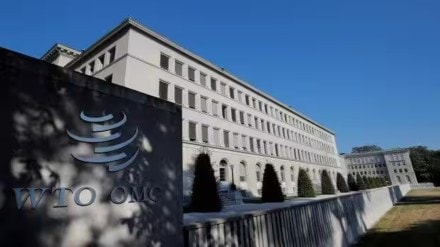The four recent climate change and trade-related regulations of the European Union are expected to be a major point of friction at the next ministerial conference of the World Trade Organisation (WTO). Developing countries are expected to mount a major challenge to the move and seek concessions to help them deal with global trade shake-up that will follow the move, a senior official said.
The Ministerial Conference is the topmost decision making body of the WTO and its 13th meeting will be held by February-end in Abu Dhabi.
India has already submitted a paper against the Carbon Border Adjustment Mechanism, also known as carbon tax, at the WTO. After India’s move other countries like China and members of the Africa Group have also filed their objection at the global trade-regulating body.
The tax will be imposed on iron and steel, cement, aluminium, fertilizers from January 2026 to start with. From India’s standpoint, the most impacted sectors would be aluminium and steel. In 2022, around 27% of India’s exports or steel and aluminium worth $8.5 billion went to the EU.
“This (EU regulations) will become a major issue in the conference. So many countries have already submitted papers against this in the WTO. It looks like discussions will happen on this and a general view will also emerge,” a senior official said.
“We will also have to discuss and engage with the EU at the conference (on the new regulations) to help exporting countries navigate the new regulatory environment,” he said.
The official admitted that countries have limited options to counter the new regulations as they will apply equally to EU’s domestic manufacturers. “In the WTO, the dispute system is defunct. If we will not engage with them and not do business with them it will hurt us only.”
To meet the commitments that the new regulations require, the EU is bringing in the latest technologies and getting into new kinds of manufacturing. “The EU can be asked for some aid for trade and sharing new technologies,” the official said.
The WTO has the provision of ‘Aid for Trade’ that helps least developed countries build capacity for exports.
Apart from carbon tax, the EU has come out with three other regulations. Deforestation Regulation stipulates that companies ensure that farm products they export to the EU have not been grown or raised on land deforested after December 2020. EU Foreign Subsidies Regulation gives the 27-nation authority to block imports of products if they were produced using subsidies and are distorting markets. It also proposes to start charging CBAM like tax on shipping from January 2027.
Germany has come out with its Supply Chain Due Diligence Act that seeks to impose labour standards on imports.
“Once the regulations are implemented in full, these will help the EU raise $500 billion to $800 billion annually through the sale of emission allowances, collection of fines and other related fees,” founder of Global Trade Research Initiative Ajay Srivastava said.
The global trade is in for more shocks as other developed countries like the UK, US, Canada and Japan are also examining replicating carbon tax, which will be imposed on emissions beyond a threshold at the production stage of a product, to meet their net zero emission targets.
